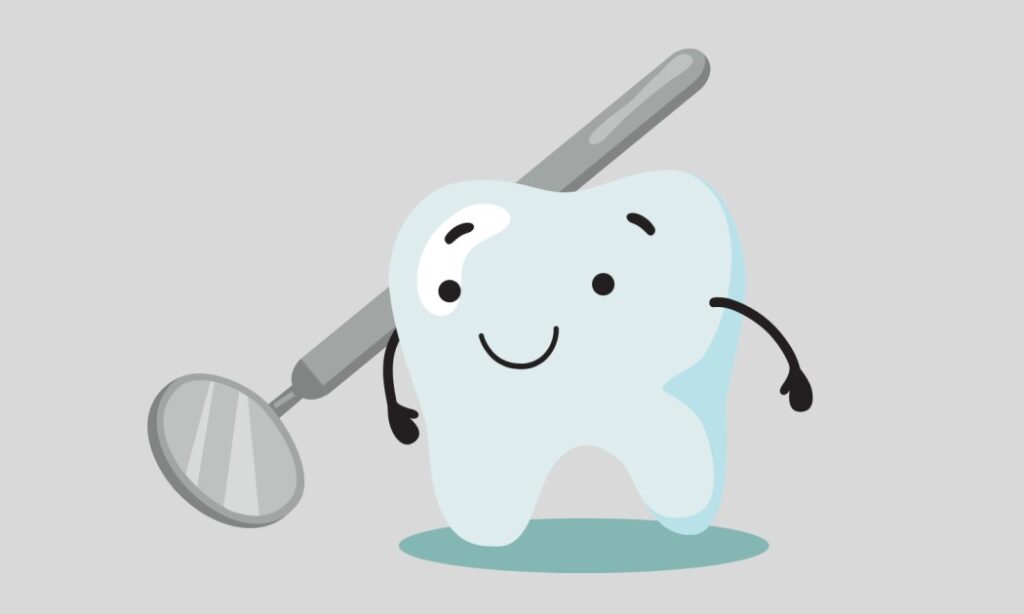Specific issues related to health and well-being require immediate treatment. The consequences of untreated dental problems, particularly the terrifying threat of a tooth infection, are one such urgent concern. A tooth infection—frequently underestimated—can seriously jeopardize general health if left untreated. In this piece, we explore an essential question that many may wonder about but are afraid to ask: How Long Until a Tooth Infection Kills You? By investigating the origins, signs, and possible outcomes, we hope to clarify the timing of this dental risk and stress how crucial it is to get treatment as soon as possible. Come on this adventure to learn about the seriousness of untreated dental infections and the critical requirement of preventative dental care. Your health may depend on the awareness of how serious a seemingly minor tooth problem could be.
Reasons Why Teeth Get Infected

The subtle advancement of dental decay is commonly the source of tooth infections. Dental caries, or cavities, are caused by the accumulation of plaque, a sticky layer of bacteria, on teeth. The protecting enamel is gradually worn down by this bacterial invasion, which makes the area perfect for the growth of diseases. If dental decay worsens, it might eventually reach the tooth’s pulp, which contains blood vessels and nerves.
Gum Disease: An Entry Point for Contamination
Periodontitis, often known as gum disease, is another common entry point for tooth infections. It starts with gingivitis, marked by bleeding and irritated gums; gum disease progresses to more advanced phases if left untreated. Pockets surrounding the teeth develop as the gums recede, giving bacteria a place to grow and flourish. If treatment is not received, these bacteria can enter the tooth roots and cause infections that could result in systemic problems.
You May Also Like Pineapple Juice for Wisdom Teeth: Natural Remedy for Relief
Stressing the Value of Good Dental Hygiene
The most effective prevention against tooth infections is dental hygiene. Frequent brushing and flossing are essential for halting plaque accumulation and delaying tooth disease. Using mouthwashes with antimicrobials and getting regular dental exams further strengthen this protection. People can considerably lower their chance of getting tooth infections and protect their general health by being aware of and practising good oral hygiene. Never forget that taking care of your teeth now is an investment in a future free from the possibly dangerous effects of neglected dental problems.
Symptoms Of Tooth Infection Spreading To Body
Identifying the Warning Signs
Continuous Toothache:
An infection is usually indicated by persistent pain in or around the damaged tooth. Though the degree can change, it usually gets worse over time.
Inflammation and Sensitivity:
Inflammation is indicated by swollen gums or a sore jaw, which may indicate an infection. Observe any alterations in the typical look of your oral tissues.
Feelings Sensitive to Heat:
An underlying illness may be suggested by increased sensitivity to food and drink temperatures, which could indicate nerve involvement.
Experiencing Pain While Chewing:
Pain or discomfort when biting or chewing could indicate infection-related structural damage.
Lousy Taste or Smell:
An unpleasant taste or chronic foul breath may indicate a bacterial illness even after practising good oral hygiene.
You May Also Like: Does Whitening Toothpaste Work? Expert Insights & Tips
Emphasizing the Need for Early Treatment and Detection

The Critical Intervention Window
1. Stopping the Progression:
By enabling prompt care, early identification stops the infection from spreading to nearby tissues or other bodily regions.
2. Maintaining Dental Health:
Early intervention helps to avoid more invasive procedures like extractions by preserving the structural integrity of the damaged tooth.
3. Steer clear of complications:
Prompt attention reduces the chance of consequences like the infection entering the bloodstream and leading to generalized health problems.
4. Lessening the Complexity of Treatment:
Early treatment of a tooth infection often entails simpler, more conservative measures, which increases the chances of positive results.
You May Also Like The Ashwagandha Debate: Does It Kill Emotions or Promote Well-Being?
Adverse Effects of Untreated Dental Infections
1. Infection Spread to Neighboring Tissues:
Untreated dental infections can result in a painful skin ailment known as cellulitis, and the formation of pus-filled pockets called abscesses in the surrounding tissues.
2. erosion of the bones
Osteomyelitis: Osteomyelitis is a dangerous condition involving bone marrow inflammation. It is brought on by an infection that progresses to the underlying bone.
3. Disfigurement and Facial Swelling:
Cellulitis Spread to the Face: If facial cellulitis is left untreated, it may cause visible swelling, redness, and even deformity.
3. B. Systematic Distribution and Its Effect on General Health
1. Infections of the Bloodstream:
Sepsis Risk: Sepsis, a potentially fatal illness marked by a systemic inflammatory reaction, can be brought on by bacteria that cause a tooth infection and enter the bloodstream.
2. Complications related to the heart:
Endocarditis and Heart Problems: Infections can damage the heart valves, resulting in endocarditis and significant cardiovascular problems.
3. Issues with the Breath:
Aspiration Pneumonia: Oral bacteria can, in extreme circumstances, aspirate into the lungs, resulting in respiratory distress and pneumonia.
4. Effect on Immune Response:
Weakening Immune System: Prolonged infections can put a person’s immune system under stress, which increases their susceptibility to various diseases.
2. Protecting Your Health with Prompt Intervention
Knowing the problems arising from untreated dental infections emphasizes how urgent it is to get competent dental care. People may make educated decisions about their health by being aware of the possible risks and the systemic effects on general health. This emphasizes the significance of preventive dental care and timely treatment when problems occur. Remember that dental health affects more than just your smile; it’s closely related to overall bodily health.
You May Also Like: The Truth About Ashwagandha and Acne: What You Need to Know”
How Long Can A Tooth Infection Go Untreated
Dangerous Complications for Life
1. The First Infection
Days 1-3: The infection brings localized symptoms like pain and swelling, which starts in the tooth pulp or surrounding tissues.
2. Expand to Neighboring Regions:
Days 4–7: If treatment is not received, the infection may spread to nearby tissues, resulting in abscesses and worsening discomfort.
3. Possible Loss of Teeth:
Weeks 2-4: When the infection is severe, the tooth’s structural integrity may be compromised, possibly resulting in tooth loss.
4. Disseminated Systemically:
Weeks 4–8: Sepsis, heart difficulties, and respiratory disorders are among the systemic consequences that might arise from microorganisms entering the blood.
5. Dangerous Complications for Life:
After Week 8: Severe sepsis and organ failure are possible life-threatening consequences if the infection is not treated.
Elements Affecting the Rate of Advancement
1. Personal Immune Reaction:
Immune Health: While a weakened immune response may cause an infection to escalate more quickly, a robust immune system can limit the spread of a disease.
2. Personal Hygiene:
Oral Care Habits: Regular oral hygiene will help prevent bacteria from growing and reduce the spread of infections.
3. Dental Care Accessibility:
Treatment Timeliness: Getting expert dental care quickly impacts treatment timeliness, keeping infections from progressing to dangerous stages.
4. Infection Type and Severity:
Bacterial Strain and Resistance: The rate at which an illness spreads can be influenced by the particular strain of bacteria present and its resistance to therapy.
Frequently Asked Questions (FAQ)
Ans: Severe symptoms like fever, swelling, and difficulty breathing may indicate a spreading tooth infection affecting other parts of the body.
Ans: A tooth infection typically takes time to escalate; seek prompt dental care to prevent complications.
Ans: Persistent pain, swelling, and sensitivity, especially with accompanying symptoms, may signal a serious tooth issue.
Ans: Garlic is considered a potent natural antibiotic for tooth infections due to its antimicrobial properties.
Ans: Listerine may help reduce bacteria in the mouth, but it’s not a substitute for professional dental treatment for infections.
Ans: Signs of sepsis from a tooth infection include high fever, rapid heart rate, confusion, and difficulty breathing; seek emergency medical attention.
Conclusion
The quiet threat that untreated dental infections pose in the complex landscape of overall health cannot be stressed. After discussing the progression from the first discomfort to potentially fatal consequences, it is evident how critical preventive dental care is. It’s not just a question, “How long until a tooth infection kills you?” but a call to action.
People can make decisions that have an impact beyond their smiles when they identify the early warning signs, comprehend the risks associated with advancement, and recognize the systemic effects on health. The progression of a tooth infection highlights the need for prompt treatment. It highlights the critical roles of immune system function, dental cleanliness, and access to medical care. The term acts as a light, reminding us to prioritize our oral health. Every gum ache or swelling is a warning sign that must be taken seriously. It’s about protecting our whole health, not just keeping a tooth. Allow the knowledge developed here to serve as the impetus for dedication to dental vigilance. This commitment could prevent the dangerous outcomes of an untreated tooth infection


